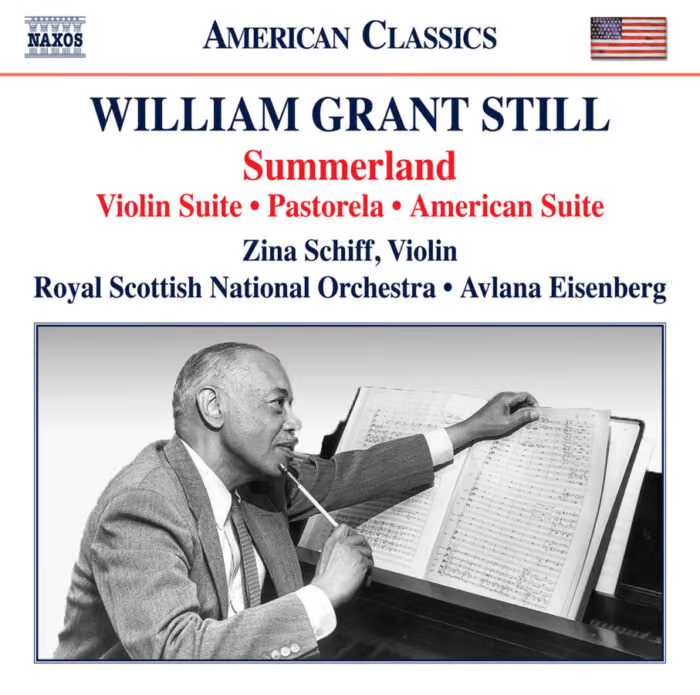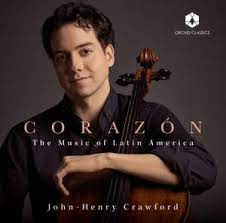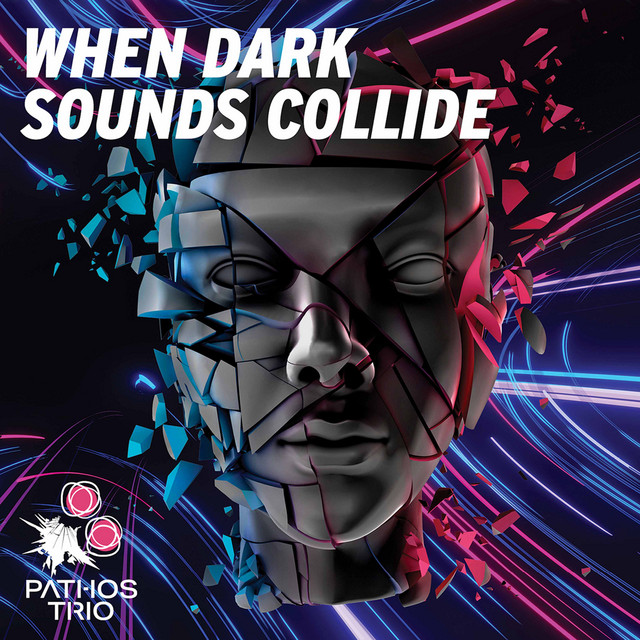Maybe as we live we look at how there is a month for this and a month for that, and the rest of the year we hope people will still honor the importance of this and that? As I write these words it is Black Music Month. Well I approve. And happily because of the existence of such a month, we might get to hear music that otherwise we might not? Well the point is to appreciate whatever such things can spawn. For example today I am most happy to extol the virtues of a recent release celebrating the music of William Grant Still, one of the most worthy of 20th century Afro-American Classical composers.
So as I write these words this morning I continue to listen to this Still anthology of some four works, Summerland, Violin Suite, Pastorela, American Suite (Naxos 8.559867). It is competently and inspiringly brought to us here by the Royal Scottish National Orchestra conducted by Avlana Eisenberg. Violinist Zina Schiff handles beautifully well the solo violin parts for the two works that call for the instrument in the spotlight.
And you listen perhaps as I did with a gradually growing appreciation for the inventive brilliance of the composer. This is not "Modernism" with a capital /M/. And it is not without some references to Afro-American music in the larger world of national music, but in many ways it is not overflowing with such things either.
And in the end we do well if we do not insist someone like Still, clearly a truly talented composer in his day, if we do not insist he create music in some mold we would create for him. No, that will not do. Listen to this music, Listen a few times if you will. And if you expect nothing particular, you will doubtless come to appreciate this music. That is the way of our last 200 years. Expect nothing "ordinary," get everything! Heartily recommended.









